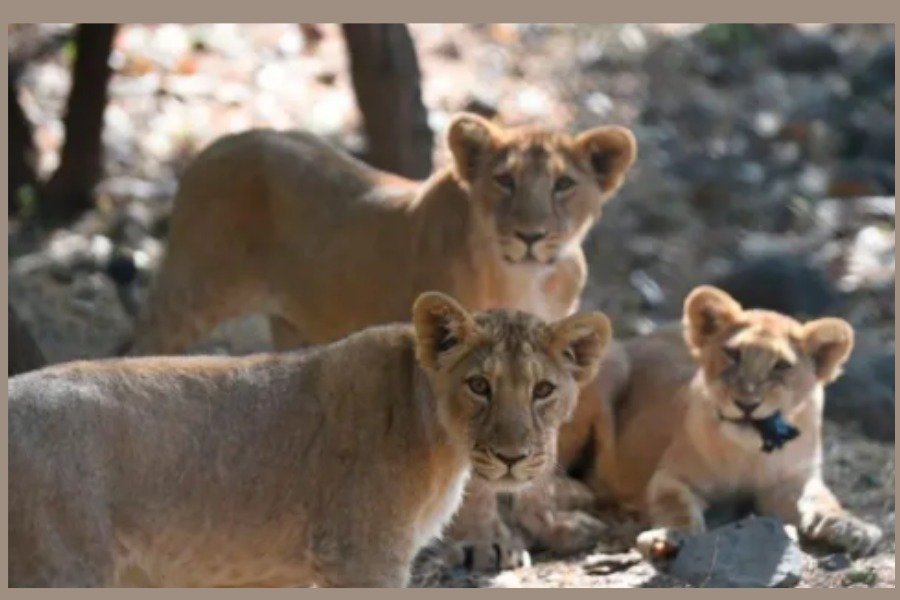The residents of Gir, who have coexisted with the Asiatic lions for generations, are now finding it difficult to adapt to the recent steps taken by the central government to protect wildlife in the area. Although these local communities have successfully lived in harmony with the lions and other wildlife for years, the new efforts to safeguard Gir’s ecosystem seem to be causing unrest among them.
The Ministry of Environment, Forest, and Climate Change of the Government of India issued a notification on September 18, 2024, declaring the primary eco-sensitive zone (ESZ) around the Gir protected area. This zone aims to enhance conservation efforts for the wildlife in the region, including the iconic Asiatic lions.
However, this notification has met with opposition from local leaders, including senior BJP members such as Dilip Sanghani, who have publicly expressed their concerns through letters and statements. They argue that the notification could affect the livelihoods of the people living around Gir and disrupt their daily lives.
On Thursday, the Forest Department clarified the situation, inviting suggestions and objections from the local communities regarding the activities allowed in the eco-sensitive zone. They also provided further details on what activities would be permitted and restricted in the area.
The Gir protected zone includes the Gir National Park, Gir Wildlife Sanctuary, Paniya Wildlife Sanctuary, and Mitiyala Wildlife Sanctuary, spanning across the Junagadh, Gir Somnath, and Amreli districts of Gujarat’s Saurashtra region. Notably, Gir is the only natural habitat of the Asiatic lion in the world.
While the government’s efforts, along with the cooperation of local communities, have resulted in notable success in lion conservation, the new restrictions in the eco-sensitive zone are raising concerns. Local opposition stems from fears that the restrictions could impact their way of life, agricultural practices, and overall livelihood. Furthermore, the fact that ruling party leaders are at the forefront of this opposition highlights the significance of the issue.
The Forest Department, on its part, is trying to balance the conservation needs of the wildlife with the interests of the people. But the question remains—how can these opposing interests be reconciled to protect both the lions and the local communities?



